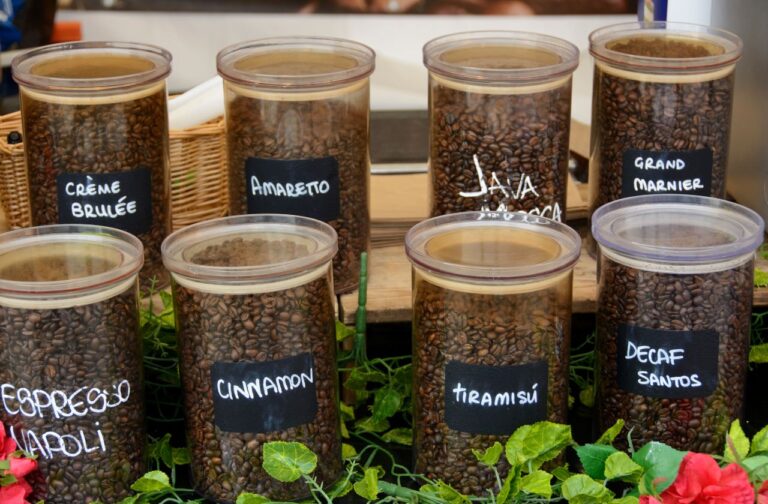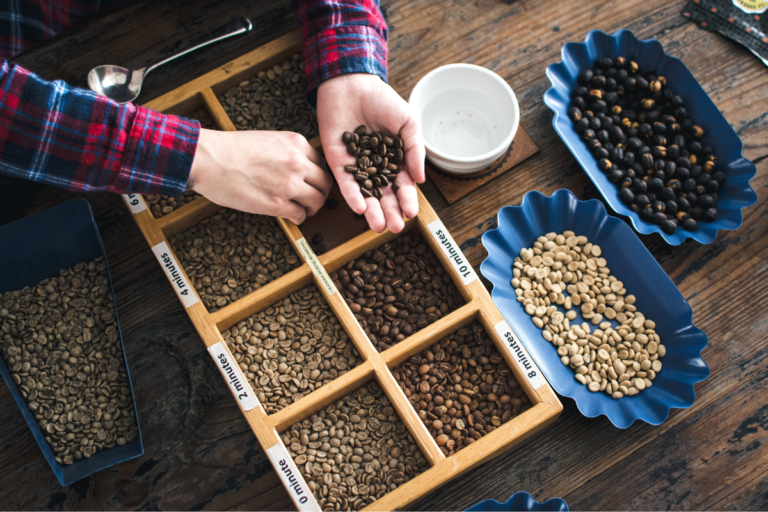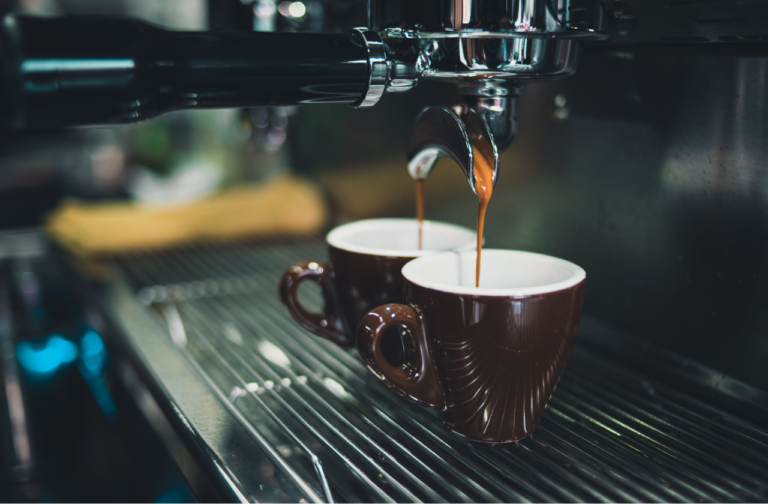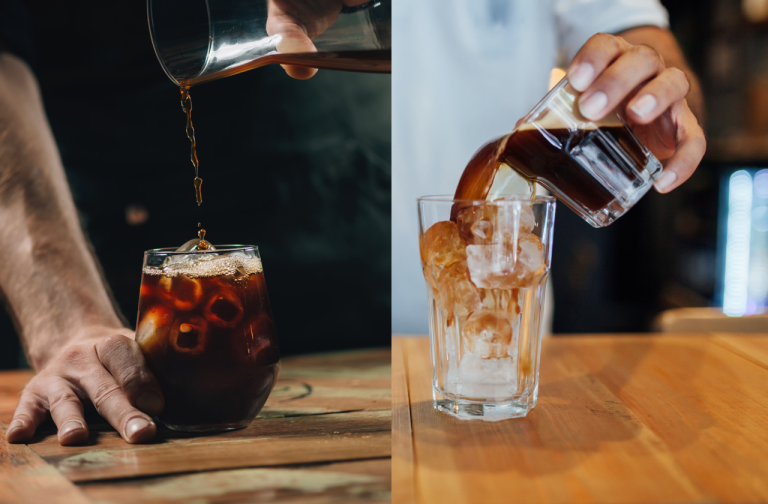Specialty Coffee Beans
Coffee has become an integral part of many people’s daily routine; for some, it’s even considered a way of life. With the rise of the specialty coffee industry, coffee has evolved into an art form. Specialty coffee beans are the highest quality beans available, carefully selected and roasted to bring out their unique flavor profiles.
Specialty coffee beans are a relatively new trend in the coffee industry. This coffee culture has led to higher quality coffee production standards, unique flavors, and socially responsible methods of producing coffee. It is a coffee culture driven by informed consumers looking for better quality.
Specialty coffee is not a new concept, but it has gained significant popularity over the last few decades. The specialty coffee industry started in the 1970s when coffee enthusiasts began exploring coffee’s potential beyond its traditional uses. Specialty coffee is now a rapidly growing industry with a loyal following of coffee lovers around the world.
What You Need To Know About Specialty Coffee Beans
The importance of specialty coffee in the coffee industry is immense. It has transformed how people consume coffee and created new opportunities for coffee farmers, roasters, and baristas worldwide.
With the rise of specialty coffee, consumers are becoming more knowledgeable about the origin, processing, and brewing methods of coffee. Customers and weird coffee people are demanding more transparency, sustainability, and high-quality products.
As a weird coffee person myself, join me as we will explore what specialty coffee beans are, what makes them different from regular coffee beans, where they come from, and how they are processed, roasted, and brewed.
We will also delve into the specialty coffee culture, trends, and the future of this exciting industry. Whether you are a coffee enthusiast or a coffee novice, I will help you gain a deeper understanding of the world of specialty coffee.
What Makes Specialty Coffee Beans Different?
Specialty coffee beans are different from regular coffee beans in several ways. They are the highest quality beans, carefully selected and roasted to bring out their unique flavor profiles.
The Specialty Coffee Association of America, or SCAA, defines specialty coffee as coffee with a score of 80 or above on a 100-point scale.
The Grading System For Specialty Coffee Beans
The grading system for specialty coffee beans is based on several factors: size, shape, color, and defects.
The SCAA has established a set of standards that coffee beans must meet to be considered a specialty coffee. These standards ensure that the beans are of the highest quality and are free of defects.
Characteristics Of Specialty Coffee Beans
Specialty coffee beans have distinctive flavor profiles that set them apart from regular coffee beans. The flavor of specialty coffee is influenced by several factors, including the altitude at which the coffee is grown, the type of soil in which it is grown, the weather conditions, and the processing method.
Factors Affecting The Flavor Of Specialty Coffee Beans
The flavor of specialty coffee is affected by several factors, including the altitude at which it is grown, the type of soil in which it is grown, the weather conditions, and the processing method.
The altitude at which coffee beans are grown has a significant impact on its flavor. High-altitude coffee tends to be more acidic and has a more complex flavor profile than low-altitude coffee.
The type of soil in which coffee is grown also affects its flavor. Coffee grown in volcanic soil tends to have a richer flavor than coffee grown in other soil types. The weather conditions during the growing season also play a significant role in the flavor of the coffee.
The processing method used for coffee beans also plays a significant role in the final flavor of the coffee beans. The three most common processing methods are washed, natural, and honey.
Washed coffee tends to have a clean, bright flavor, while natural coffee has a sweeter, fruitier flavor. Honey coffee has a unique flavor profile that is a combination of both washed and natural coffees.
Specialty coffee beans are different from regular coffee beans in several ways.
- They are graded based on their size, shape, color, and defects.
- They have distinctive flavor profiles that are influenced by several factors, including altitude, soil type, weather conditions, and processing methods.
- The coffee requires special preparation to get the most out of the flavor profiles.
Understanding what makes specialty coffee beans different is crucial to appreciating their unique flavor profiles and enhancing the coffee-drinking experience.
Where Do Specialty Coffee Beans Come From?
Specialty coffee beans come from specific regions around the world known for producing high-quality coffee. These regions are typically located in the “coffee belt,” which is a band around the equator between the Tropics of Cancer and Capricorn.
Specialty coffee is grown in several regions around the world, including Central and South America, Africa, and Asia. Some of the most popular specialty coffee-growing regions include Colombia, Ethiopia, Kenya, Costa Rica, and Indonesia. Each region has its unique flavor profile, influenced by the specific growing conditions in that area.
Coffee connoisseurs have borrowed a term from the wine industry called “terroir,” a French word that describes the local flavor imparted to the wine due to the locality where the grapes are grown and the soil in which the vines develop.
The same principle applies to coffee, where the region, climate, soil, and other environmental conditions impact the flavor of the coffee beans produced in that region. This is why coffee beans from different regions have unique flavor profiles that are distinct from one another.
Colombia is one of the world’s largest producers of specialty coffee, known for its mild, well-balanced flavor with notes of caramel and nuts.
Ethiopia is the birthplace of coffee and produces some of the most complex and fruity coffees in the world. Kenya produces coffee with a bright, citrusy flavor and a wine-like acidity.
Costa Rica is known for its clean, bright, and complex flavor profiles, while Indonesia produces coffee with a rich, full-bodied flavor and low acidity.
To summarize where specialty coffee beans originate, they come from specific regions worldwide known for producing high-quality coffee.
Each region has its unique flavor profile, influenced by the specific growing conditions in that area. Understanding the influence of terroir on specialty coffee is essential to appreciate the unique flavors of coffee from different regions.
Processing Methods For Specialty Cofee Beans
The processing method used for coffee beans significantly influences their flavor profile. Three main processing methods are used for coffee beans: washed, natural, and honey.
Each method produces coffee with a distinct flavor profile.
Washed Processing Method For Specialty Cofee Beans
The washed processing method involves removing the outer layers of the coffee cherry and then fermenting the beans to remove the remaining fruit.
The beans are then washed and dried. This process produces coffee with a clean, bright flavor profile and a high acidity.
Natural Processing Method For Specialty Coffee Beans
The natural processing method involves drying the coffee cherries with the beans still inside. This process allows the natural sugars in the fruit to ferment and penetrate the beans, giving them a sweeter, fruitier flavor profile. Natural coffee tends to have a lower acidity than washed coffee.
Honey Processing Method For Specialty Coffee Beans
The honey processing method is a hybrid of the washed and natural methods. It involves removing the outer layers of the coffee cherry but leaving some of the fruit attached to the bean.
The beans are then dried, allowing the remaining fruit to ferment and penetrate the beans. Honey coffee has a unique flavor profile that is a combination of both washed and natural coffees.
Impact Of Processing Methods On Specialty Coffee Bean Flavor Profiles
The processing method used for coffee beans significantly impacts their flavor profile. Washed coffee tends to have a clean, bright flavor, while natural coffee has a sweeter, fruitier flavor.
Honey coffee has a unique flavor profile that combines both washed and natural coffees.
Specialty Coffee Bean Processing Methods And Sustainability
The processing method used for coffee beans brings the sustainability of coffee production under the microscope.
The washed method requires a lot of water, which can be a scarce resource in some regions. Natural and honey processing methods require less water, making them more sustainable options.
The processing method used for coffee beans significantly impacts their flavor profile. Understanding the differences between the washed, natural, and honey methods is essential to appreciate the unique flavor profiles of specialty coffee.
The processing method used can impact the sustainability of coffee production, which can impact the sales of coffee beans, where more and more consumers are becoming selective in using products that have less of a negative impact on our environment.
Roasting Specialty Coffee Beans
Roasting is the final step in the process of producing specialty coffee beans. Roasting coffee beans involves heating them to a high temperature, which causes chemical reactions that create coffee’s characteristic flavor, aroma, and color.
The roasting process is crucial in determining the final flavor profile of the coffee. The roasting process involves heating the coffee beans to a high temperature in a roasting machine.
As the beans heat up, they undergo several chemical reactions that change their physical and chemical properties, including color, flavor, and aroma. The degree of roast, or the amount of time the beans are roasted, is a crucial factor in determining the flavor profile of the coffee.
The degree of roast can range from light to dark, with each level producing a different flavor profile. Light roast coffee tends to have a lighter body, higher acidity, and a brighter, more floral flavor profile. Dark roast coffee has a darker color, lower acidity, and a stronger, more robust flavor profile.
Impact Of Roasting On Specialty Coffee
Roasting has a significant impact on the flavor profile of specialty coffee. The degree of roast can highlight or mask certain flavor notes in the coffee.
For example, a light roast can bring out the floral and citrus notes in a coffee, while a dark roast can mask those flavors and bring out more earthy and nutty notes.
In recent years, lighter roast coffee has been the dominant trend, as it allows the unique flavor notes of specialty coffee to shine through. Additionally, specialty coffee roasters are experimenting with different roasting techniques and temperatures to bring out new and unique flavor profiles in their coffee.
Understanding the roasting process is vital when choosing a specialty coffee that produces the flavor nuances you are looking for in your brew.
Brewing Specialty Coffee
Brewing is the final step in the process of enjoying specialty coffee. Brewing coffee involves extracting the flavor and aroma compounds from the roasted beans using water. Several different brewing methods can be used to extract the unique flavor profiles of specialty coffee.
- Pour-over. Pour-over coffee brewing involves pouring hot water over ground coffee beans placed in a filter. This method allows for precise control over the brewing process and produces a clean, bright cup of coffee.
- French press. The French press method involves steeping ground coffee beans in hot water and then using a plunger with a mesh filter to separate the coffee from the grounds. This method produces a fuller-bodied cup of coffee with more oils and sediment.
- Espresso. Espresso is a concentrated form of coffee that is brewed under high pressure using finely ground coffee beans. This method produces a strong, bold flavor profile and is often used as a base for specialty coffee drinks like lattes and cappuccinos.
How Does The Brewing Method Impact Specialty Coffee?
The brewing method used can significantly impact the flavor profile of specialty coffee. Different brewing methods extract different flavor compounds from the coffee, resulting in unique flavor profiles.
Additionally, factors like water temperature, water-to-coffee ratio, and brew time can all impact the final flavor of the coffee.
The recent trend is toward using lighter roast coffee, emphasizing the unique flavor profiles of specialty coffee.
This has increased the popularity of pour-over and other manual brewing methods that allow for precise control over the brewing process. The trend has prompted specialty coffee shops to experiment with new brewing methods and techniques to create unique and exciting flavor profiles for their customers.
Specialty Coffee Culture
Specialty coffee culture is a growing phenomenon that has taken the world by storm. Specialty coffee refers to coffee that is grown, processed, roasted, and brewed with a focus on quality, sustainability, and social responsibility.
Specialty coffee culture involves a community of coffee enthusiasts who appreciate and celebrate the unique flavors and qualities of specialty coffee.
Specialty coffee culture has its roots in the third-wave coffee movement, which emerged in the late 20th century as a response to the mass production of low-quality coffee. The third-wave coffee movement emphasized the importance of quality and sustainability in coffee production and consumption.
There are several characteristics that have come out of the specialty coffee culture.
- Emphasis on quality. Specialty coffee culture places a high value on the quality of the coffee. This includes everything from the origin and processing of the beans to the roasting and brewing methods used.
- Sustainability and social responsibility. Specialty coffee culture is committed to sustainability and social responsibility in all coffee production and consumption aspects. This includes fair trade practices, environmentally responsible farming methods, and support for local communities.
- Community and education. Specialty coffee culture is built around a community of coffee enthusiasts who share a passion for quality coffee. This community is often involved in coffee education, including training in brewing methods, tasting techniques, and understanding the intricacies of coffee production.
Specialty coffee culture is a global phenomenon, with communities of coffee enthusiasts in cities around the world. From specialty coffee shops in New York City to coffee farms in Colombia, specialty coffee culture is a growing and dynamic movement.
What Is The Impact Of The Specialty Coffee Culture
Specialty coffee culture has significantly impacted the coffee industry, elevating the status of coffee from a commodity to a luxury item. It has also raised awareness about the importance of sustainability and social responsibility in coffee production and consumption.
Specialty coffee culture is a growing phenomenon that celebrates quality, sustainability, and social responsibility in coffee production and consumption. It is built around a community of coffee enthusiasts who share a passion for quality coffee, and the demand is significantly impacting the coffee industry and beyond.
Specialty Coffee Trends
Specialty coffee is a dynamic industry that is constantly evolving. As consumers’ tastes and preferences change, new trends emerge in the specialty coffee market.
The specialty coffee culture is changing the landscape and the trends in the coffee industry.
- Lighter roast coffee. Lighter roasts are becoming more popular to allow the unique flavor profiles of specialty coffee to shine through, as the roast level does not overpower the inherent flavors of the coffee.
- Single-origin coffee. Single-origin coffee implies that coffee comes from a specific region or even a specific farm. This trend emphasizes the unique flavor profiles of coffee from different regions and the impact of terroir on the flavor of the coffee.
- Cold brew and nitro coffee. Cold brew coffee brewing involves steeping coffee grounds in cold water for an extended period of time, resulting in a smooth and refreshing coffee drink. Nitro coffee is cold brew coffee that is infused with nitrogen gas, resulting in a creamy and frothy texture similar to a Guinness beer.
- Sustainable and eco-friendly practices. The specialty coffee culture places an increasing focus on sustainability and eco-friendly practices in the specialty coffee industry. This includes using compostable or recyclable coffee packaging, reducing waste in the coffee production process, and supporting sustainable coffee farming practices.
- Innovative brewing methods. Specialty coffee shops are always experimenting with new brewing methods and techniques to create unique and exciting flavor profiles for their customers. This includes using alternative brewing methods like the AeroPress or the Chemex and incorporating new ingredients like spices and herbs into coffee drinks.
- Plant-based milk alternatives. As more consumers adopt plant-based diets, there has been a rise in the popularity of plant-based milk alternatives like almond milk, oat milk, and soy milk in coffee drinks.
The specialty coffee industry is constantly evolving, with new trends and innovations constantly emerging. From lighter roast coffee to sustainable and eco-friendly practices, these trends reflect changing consumer tastes and preferences and the continued growth and evolution of the specialty coffee industry.
Conclusion
Specialty coffee beans are a unique and exceptional product that has recently gained popularity. These beans are distinguished by their quality, sustainability, and unique flavor profiles, which are the result of careful cultivation, processing, roasting, and brewing techniques. Specialty coffee culture is a growing movement that celebrates quality, sustainability, and social responsibility in coffee production and consumption. As the specialty coffee industry continues to evolve, it is clear that consumers’ tastes and preferences will continue to shape the future of this dynamic and exciting industry.






